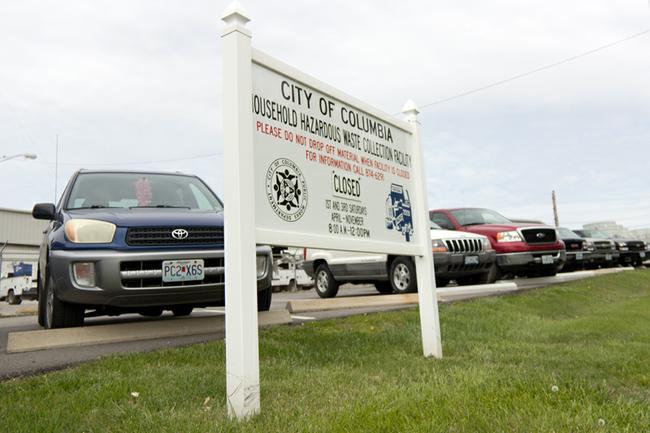The Columbia Public Works Household Hazardous Waste Facility reopened for residential waste disposal April 7.
The facility provides Columbia residents with a free waste-disposal service for hazardous household materials that cannot be disposed of through regular trash collection.
The facility is closed during the winter and open during the spring, summer and fall, Columbia Public Works spokeswoman Jill Stedem said. The opening prompted many residents to dispose of their waste.
“It was a very busy event,” said Nicholas Paul, City of Columbia Solid Waste Collection superintendent. “We had 367 vehicles in a four-hour period. This (collection) was the first one of (the year), so we usually get bombarded with vehicles coming in.”
The facility is promoted throughout the season as a way to keep chemicals and other waste products out of landfills, Stedem said.
“It’s actually illegal to put these types of items in a landfill,” she said.
Common household items that should be disposed of at a hazardous waste facility include aerosol cans, medications, paint, batteries, motor oil, fertilizer and gasoline, according to the Columbia Public Works website. Products are hazardous if they are flammable, explosive, reactive, corrosive or toxic.
Different kinds of waste are disposed of in different ways, Paul said.
“If the paint can has paint in it, we’ll give it up later on,” he said. “Pharmaceuticals can (be) disposed of with a liner in a landfill. Chemicals are put all together, and they end up getting sent to a facility where they dispose of it.”
The facility houses the only free disposal service available in Columbia from April through November. Those in need of the service need only drive to the facility on the first or third Saturday of the month, Paul said.
“All (Columbia residents) have to do is come around the front of our building and volunteers will ask people what they have,” he said. “There are two lines. Anything automotive will be in the left line, and just chemicals are in the right line.”
The facility gives an outlet for proper disposal, Paul said.
“(Improper disposal) is always a concern,” he said. “If you don’t give somebody a place to get rid of it for free, they’ll go to throw it out.”








